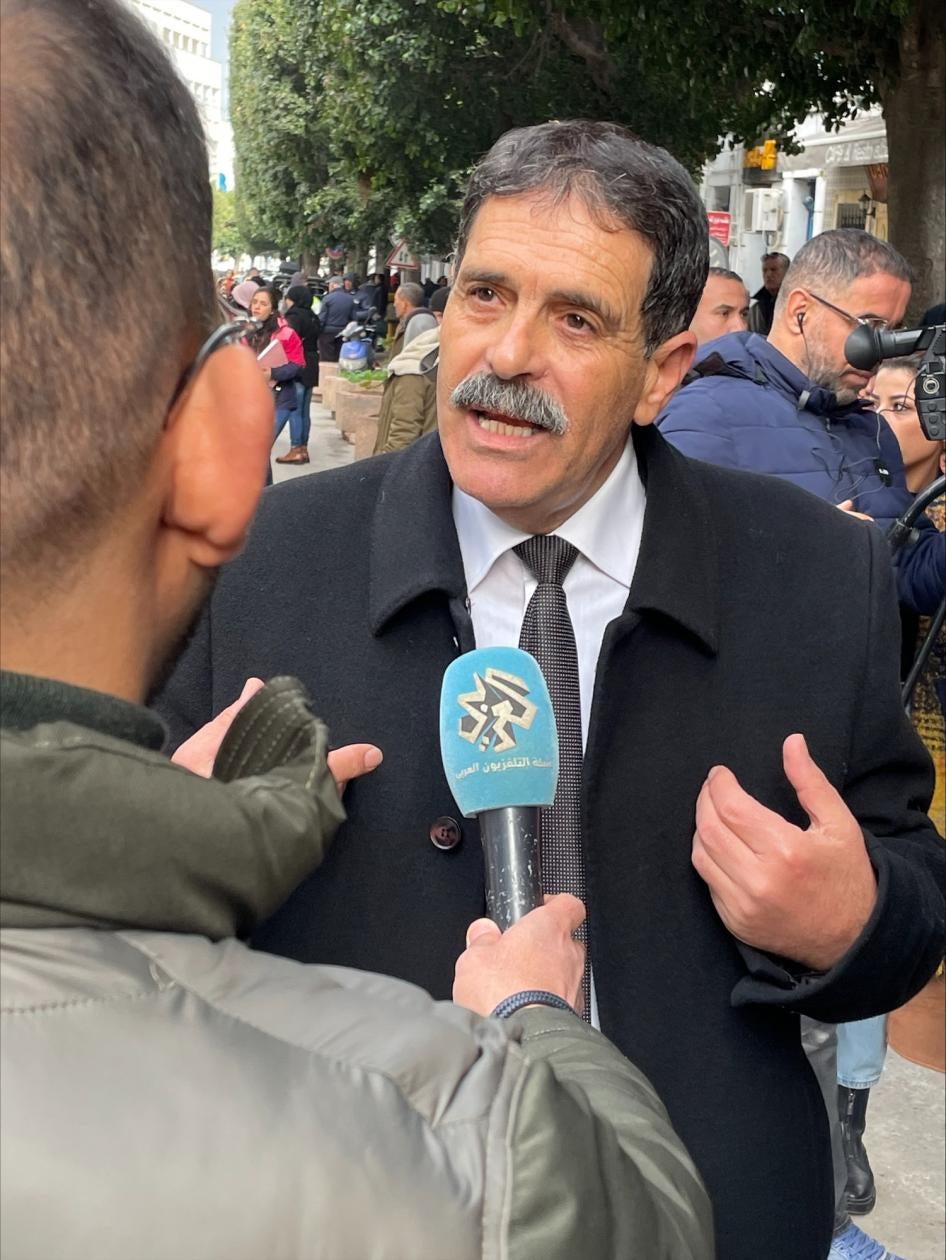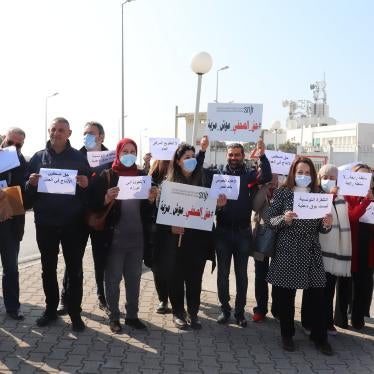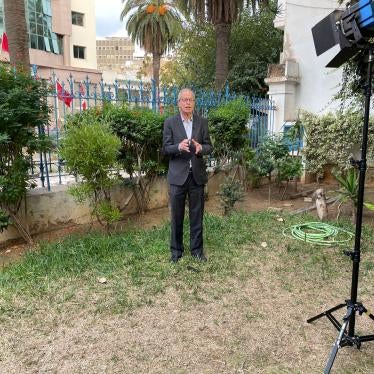During the long presidency of Zine el-Abidine Ben Ali, police largely prevented human rights associations and defenders from gathering. But when a high-profile political trial was happening, activists would often turn up en masse across the street from the Tunis Court of First Instance to support defendants.
Despite increasing repression since President Kais Saied's power grab on July 25, 2021, civil society in Tunisia remains freer today than under Ben Ali, who was ousted in January 2011 after more than 20 years in power. But on January 10, an alarming political case against a veteran activist brought the human rights flash mob back to that same sidewalk across from the court.
In numbers rarely seen since the revolution that led to Ben Ali’s fall in 2011, activists, lawyers, and former political prisoners from that era joined younger comrades in solidarity with human rights lawyer Ayachi Hammami, 63, who was appearing that morning.
Hammami faces charges for a radio interview he gave on December 29, 2022, as coordinator of the Committee to Defend the Dismissed Judges, in which he condemned President Saied’s efforts to eviscerate judicial independence. On June 1, 2022, Saied decreed himself the power to fire judges and the same day sacked 57. Hammami accused Justice Minister Leila Jaffel of “committing a crime” by refusing to implement an administrative court ruling to reinstate most of the judges, and of “fabricating” criminal cases against them.
The charge against Hammami is based on a complaint Jaffel filed pursuant to Law 54, decreed by President Saied last September. Hammami is accused under article 24 of spreading “false information with the aim of infringing on the rights of others and threatening public security, and attributing false information to defame others.” Provisionally at liberty, Hammami could face 10 years in prison.
In recent months Jaffel has filed criminal complaints against several political figures and news media for criticizing the president and his government.
Inside the investigating judge’s chamber on January 10, 22 defense lawyers took turns arguing Hammami had merely exercised his right to free expression to defend judicial independence. The judge must now decide whether to refer Hammami to trial.
By the time the defense lawyers had finished oral arguments in the late afternoon, the scrum on the sidewalk across from the courthouse had subsided. But the human rights pioneers who had showed up in force that morning seemed resigned that they would be back.
“I thought those days were behind us,” said Khadija Cherif, 72, who headed the Tunisian Association of Democratic Women during the Ben Ali years.










